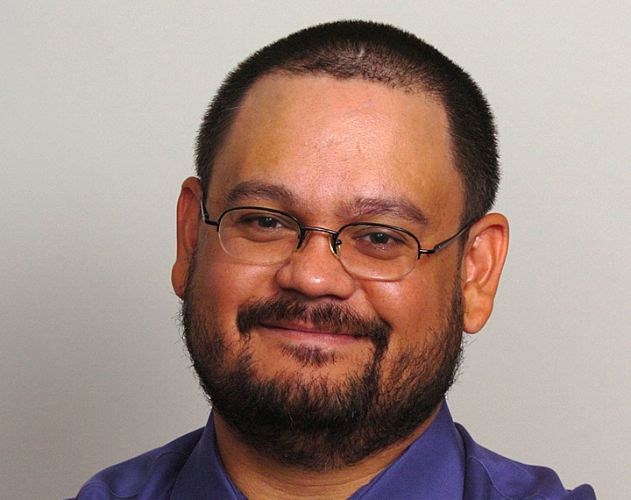With their unmitigated open-for-business pablum and more-for-less magical thinking, municipal elections are not unlike the uncomfortably bland chicken-broth-and-water fasts one undergoes before medical testing.
But, like those fasts, what with the cleansing and urination, even the least municipal election is a watershed moment in a city's history. The most significant contests are seismic in scope, with aftershocks, both subtle and dramatic, that can be felt years after. And one of the biggest of all was in 2005, when Mayor Colin Kinsley bested long-time councillor Dan Rogers to secure a fourth and final term.
That could be considered a bold appraisal even by the standards of the past two elections, which have seen Prince George's first defeat of an incumbent mayor in 60 years (Shari Green over Rogers in 2011) and the city's first new face at the head of council in 12 years (Rogers, again, overcoming current mayoral candidate Don Zurowski in 2008). The result itself was not that dramatic - a sitting mayor overcomes a challenger. But the 2005 mayoral election take the title through its bare margin of victory (Kinsley won by 642 votes).
There was no hiding the ideological clash of left and right - the Citizen reported organized labour came out strongly for Rogers during a campaign rally while Kinsley had been a federal candidate for the Progressive Conservatives; indeed, much of the campaign was tinged with the controversial sale by the provincial Liberals of B.C. Rail, which Kinsley supported and Rogers opposed. There was also a clear contrast in style, between the more pugnacious Kinsley (as shown by his brawl with council over the hockey fight event at CN Centre) to the more considered Rogers, who it's been written before and since was perhaps studious to a fault.
According to a Citizen/CKPG poll conducted the week of the election, the candidates were in a dead heat. Rogers, it has been said by pundits ranging from Paulson to Strachan to Godbout, would have driven Kinsley from office were it not for one issue: the Cameron Street bridge.
The crossing over the Nechako River had been closed that fall after rot was discovered in one of the spans. In 2004, council had agreed to build a new bridge pending funding from the federal and provincial governments but three councilors - Rogers, Zurowski, and Brian Skakun - wanted to consider other possibilities and perhaps other locations.
Kinsley's stance was clear - build the bridge - while Rogers would struggle to qualify his more nuanced position. In the end, the industry across the river, who didn't want maybes on the link across the Nechako, and Hart commuters, forced to travel up Fifth Avenue to the John Hart bridge, proved the challenger's undoing - as then Citizen editor Dave Paulson pointed out, Kinsley beat Rogers by 465 votes in the two polling stations north of the river.
Rogers may have also made another tactical error; according to the Citizen, the then councilor waited until the last Friday before nominations closed to file his papers. With little prospect for a race before Rogers' entry, the ballot swelled with more marginal candidates - Tyler Doerksen, Nathan Prince and Trent Derrick. Of those Derrick pulled in 571 votes, quite a feat considering he was being mauled by two lions in Rogers and Kinsley.
Derrick attempted to convert his performance in 2005 into a council seat in 2008 but fell short - he's back at it again this year.
Rogers, however, did return - he beat the top-polling councillor of 2005, Zurowski, in 2008. But one wonders what Prince George would have been if Rogers had overtaken Kinsley in 2005. Unlike his first six years, marked by recession, the softwood lumber dispute and the mountain pine beetle epidemic, Kinsley's final term was one of relative prosperity for Prince George.
What would Rogers have done with that term as mayor? Instead, as Rogers was taking office in 2008, obscure banks and esoteric financial instruments had conspired to turn the world upside down. In 2005, Rogers would have been leading a city with a sparking economy; in 2008, he inherited a city facing a global event whose like hadn't been seen the Great Depression
Would Zurowski have taken on Rogers as an incumbent mayor under those circumstances in 2008 or would he have bided his time and waited on council? Would Shari Green have taken on Rogers, perhaps a two-term mayor, in 2011? Would she have run against Rogers or Zurowski; would she have won?
Strangely enough, Zurowski finds himself on the opposite end of the equation he was on in 2008, an outsider who is a council and a mayoral campaign veteran taking on a challenger in Lyn Hall who's spent three prominent years in city government. But the city they're fighting for is very different now, one marked by the first strike by municipal workers in Prince George history, ever-crumbling infrastructure, and a sputtering economic recovery.
It's been said Kinsley beat Rogers in 2005 by 642 votes but that's not quite true - he beat him with 17,621 votes, the most cast in the history of this city. Eight-thousand six hundred and fifty souls cast ballots for Kinsely to the 8,007 who made their mark for Rogers.
If a handful had chosen differently, this city would be a much different place.



